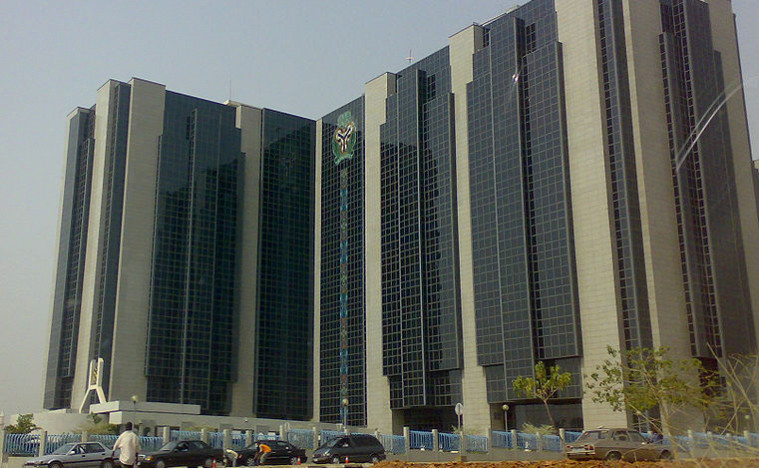Strong monetary, fiscal policies will take Nigeria out of recession

The Monetary Policy Committee of the Central Bank of Nigeria on Tuesday warned that the economy might relapse into protracted recession if bold monetary and fiscal policies were not activated immediately to sustain the programmes of the Federal Government.
The committee stated that available forecasts of key macroeconomic indicators pointed to a fragile economic recovery in the second quarter of the year.
Data from the National Bureau of Statistics showed that the contraction in the economy moderated to 0.52 per cent in the first quarter.
The MPC identified the downside risks to economic outlook to include weak financial intermediation, poorly targeted fiscal stimulus and absence of structural programme implementation.
The CBN Governor, Mr. Godwin Emefiele, while reading the communique after the end of the committee’s two-day meeting, called for more fiscal measures to stimulate the economy.
He said there was a need for improvements in economy-wide non-oil exports, especially agriculture, manufacturing, services and light industries.
He also said the expected fiscal stimulus, non-oil federal receipts and other measures that were expected to drive the growth impetus for the rest of the year must be pursued relentlessly.
Emefiele stated, “Available forecasts of key macroeconomic indicators point to a fragile economic recovery in the second quarter of the year. The committee cautioned that this recovery could relapse into a more protracted recession if strong and bold monetary and fiscal policies are not activated immediately to sustain it.
“Thus, the expected fiscal stimulus and non-oil federal receipts, as well as improvements in economy-wide non-oil exports, especially agriculture, manufacturing, services and light industries, all expected to drive the growth impetus for the rest of the year, must be pursued relentlessly.”
He added, “The committee expects that timely implementation of the 2017 budget, improved management of foreign exchange, as well as security gains across the country, especially in the Niger Delta and north-eastern axis, should be firmly anchored to enhance confidence and sustainability of economic recovery.
“The committee identified the downside risks to this outlook to include weak financial intermediation, poorly targeted fiscal stimulus and absence of structural programme implementation.”
Emefiele also said the committee expressed concern over the ₦2.51tn fiscal deficit of the Federal Government in the first half of this year, adding that it was stifling the growth of the private sector.
He welcomed the move by the fiscal authorities to engage the services of asset tracing experts to investigate the tax payment status of 150 firms and individuals in an effort to close some of the loopholes in tax collection and improve government revenue.
However, the governor said the committee expressed concern about the slow implementation of the 2017 budget and called on the relevant authorities to ensure timely implementation, especially, of the capital portion, in order to realise the objectives of the Economic Recovery and Growth Plan.
He added, “The MPC expressed concern over the increasing fiscal deficit estimated at ₦2.51tn in the first half of 2017 and the crowding out effect of high government borrowing.
“While urging fiscal restraint to check the growing deficit, the committee welcomed the proposal by the government to issue sovereign-backed promissory notes of about ₦3.4tn for the settlement of accumulated local debts and contractors’ arrears.
“The committee, however, advised the management of the bank (CBN) to monitor the release process of the promissory notes to avoid an excessive injection of liquidity into the system, thereby offsetting the gains so far achieved in inflation and exchange rate stability.”
On the outlook for financial system stability, the CBN governor said the MPC noted that in spite of the resilience of the banking sector, the prolonged weak macroeconomic environment had continued to impact negatively on the sector’s stability.
He noted that the committee reiterated its call on the apex bank to sustain its intensive surveillance of Deposit Money Banks’ activities for the purpose of promptly identifying and addressing vulnerabilities.
The committee, according to Emefiele, also called on the DMBs to support economic recovery and growth by extending reasonably-priced credit to the private sector.
On the Monetary Policy Rate, the governor said the committee voted to leave the rate unchanged at 14 per cent.
He explained that the six members of the committee agreed to maintain the current monetary policy stance.
He, however, added that two members voted to ease the Monetary Policy Rate.
The governor said apart from the MPR, which was retained at 14 per cent, the committee also retained the Cash Reserves Ratio at 22.5 per cent.
Also retained were the Liquidity Ratio at 30 per cent; and the Asymmetric Window at +200 and -500 basis points around the MPR.
Explaining the reason for holding the rates despite calls by the Minister of Finance, Mrs. Kemi Adeosun, and the Senate President, Bukola Saraki, for a reduction, Emefiele said that inflation rate, expected to fall by August, still had a strong base effect on the monetary policy stance.
According to him, the MPC believes that at this point, developments in the macro economy suggest the options of either to hold or to ease the monetary policy stance.
He said the committee was not unmindful of the high cost of capital and its implications on the ailing economy, but noted the liquidity surfeit in the banking system and the continuous weakness in financial intermediation.
While easing at this point will signal the committee’s sensitivity to growth and employment concerns by encouraging the flow of credit to the real economy, he stated that the rate of inflation, currently at 16.1 per cent, was capable of retarding growth.
He added that any reduction in interest rate at this time would reduce the cost of debt servicing, which was actually crowding out government expenditure.










0 Comments